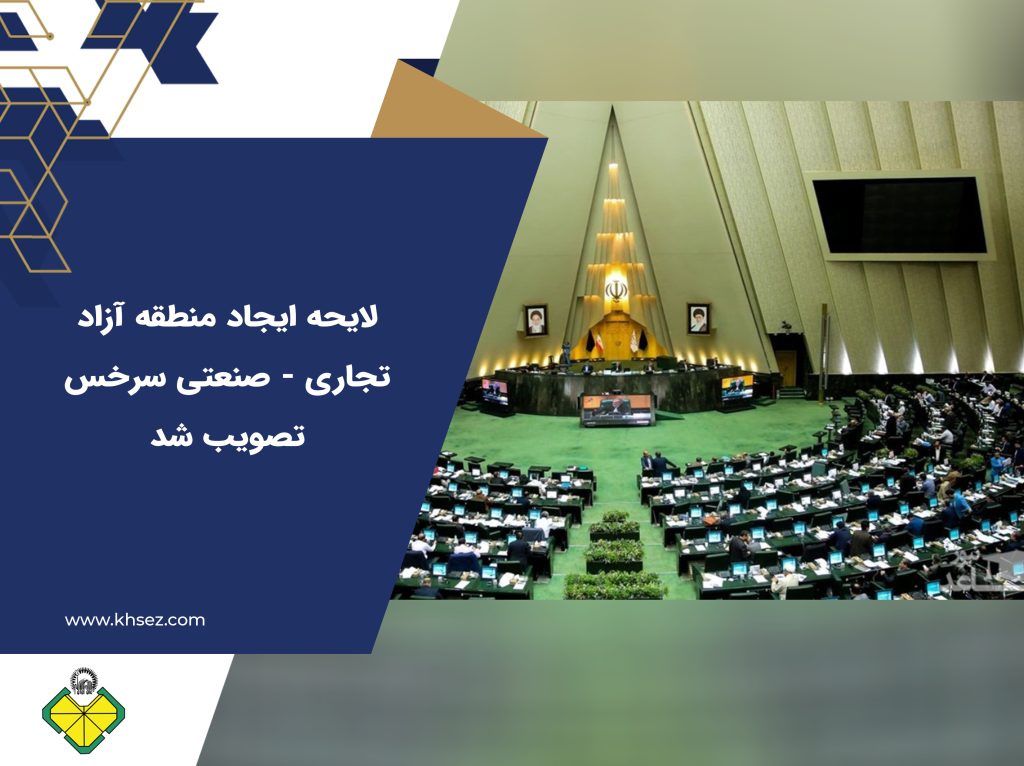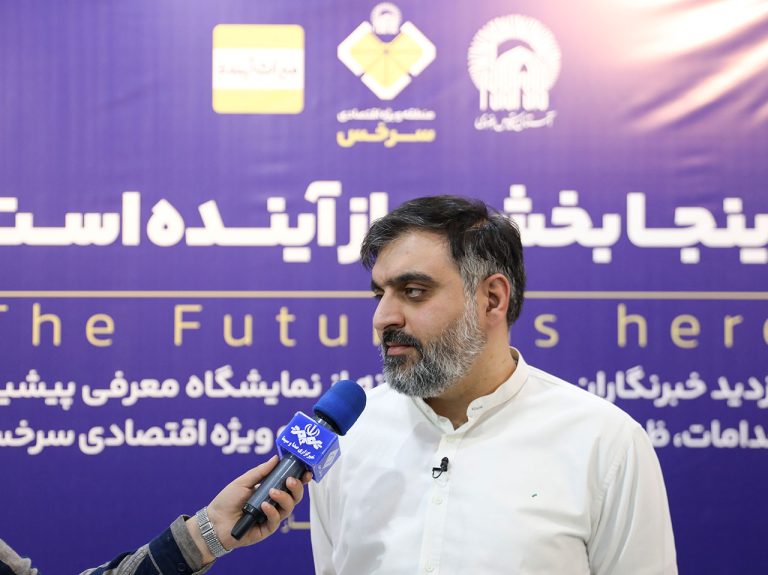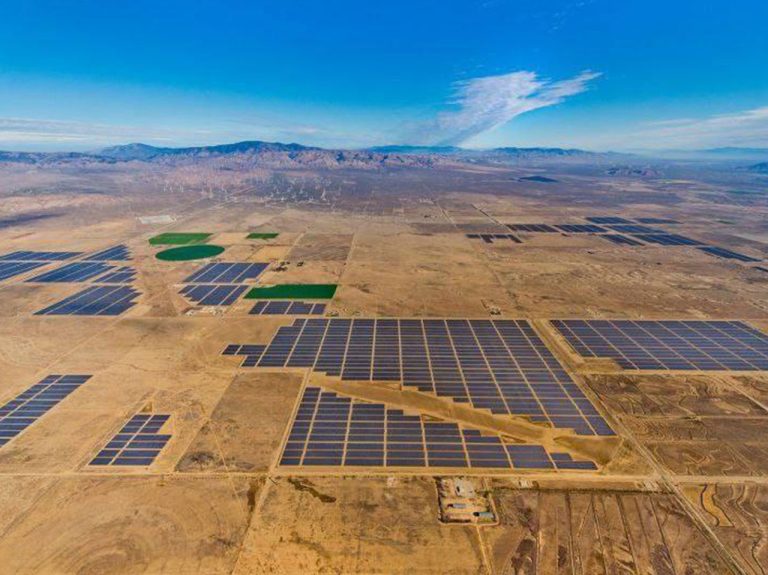According to the reporter of Khane Mellat news agency, the representatives in today’s (Sunday, August 15) public meeting of the Islamic Council agreed with the general report of the Economic Commission on the bill to establish the Sarkhes Free Trade Zone with 163 votes in favor, 33 votes against and 9 abstentions. 226 representatives present at the meeting agreed.
Furthermore, the representatives agreed with the single article of the mentioned bill with 171 votes in favor, 17 votes against and 8 abstentions from the total of 221 representatives present in the meeting.
This article states: The government is allowed to establish Sarkhas commercial-industrial free zone in Khorasan-Razavi province outside the population points as described in the attached map and explanatory report.
Note 1- The commercial-industrial free zone created in compliance with the following notes and based on the law on how to administer commercial-industrial free zones of the Islamic Republic of Iran approved on 6/7/1372 and its subsequent amendments are administered. Any changes in the approved limits are subject to the proposal of the Council of Ministers and the approval of the Islamic Council.
Note 2- The application of legal privileges related to the entry and exit of goods, with the exception of materials, goods, equipment and machinery required for the investment and development plans of the regions, in this region, subject to the approval of the enclosure of the desired area by the customs of the Islamic Republic of Iran and its establishment in the bases It is the entrance and exit of the area. The organization of each region can gradually enclose parts of the approved legal boundaries of the region and make it operational after the approval and establishment of the Islamic Republic of Iran Customs.
Note 3- The organization of the region is obliged to prepare the master plan of the region within one and a half years after its formation in compliance with the upstream national documents and plans and submit it to the Supreme Council of Free Commercial-Industrial and Special Economic Zones for approval. The Supreme Council is obliged to notify the approval of the comprehensive plan within six months at the latest.
Note 4- The ruling of Note (3) of the law on the establishment of seven commercial-industrial free zones and the establishment of thirteen special economic zones approved on 2/30/2019 is valid for this zone.
Note 5- The license to import foreign passenger cars within the limits of this region is only given to persons who have a license for economic activity within the limits of the region. The movement of the above vehicles is possible only within the approved limits of this law.
Note 6- The Secretariat of the Supreme Council of Free Commercial-Industrial and Special Economic Zones is obliged to prepare a performance report of the Free Commercial-Industrial Zone created pursuant to this law and submit it to the Economic Commission of the Islamic Parliament once every six months.
According to this report, Hojatullah Abdul Maliki, the secretary of the Supreme Council of Free Commercial-Industrial and Special Economic Zones, said in defense of this bill: Fern region is now a special region and is of special importance to us.
He added: Although some argue that the function of free zones was not what it should be and it must be said that this is true, but I must state that the most important issue in this field is the stability of laws and regulations, that there is a solid legal infrastructure so that investors can Plan for the long term.
Abdul Maliki stated: Both the government with contradictory regulations and sometimes the parliament by passing some laws have challenged the advantages of free zones and caused instability. To solve this issue, we request the approval of laws in the 7th plan bill to ensure stability.
Mohammad Reza Pour Ebrahimi Davarani, the head of the Economic Commission of the Parliament, also stated in this area: The biggest capacity to help exports in this area that can be done is related to ferns.
The representative of the people of Kerman and Raver in the parliament said: The existence of 120 economic units in Sarkhes is one of the issues that make this region export-oriented.
Regarding the proposal of one of the representatives to ban the import of American and British cars, he pointed to the decision of the Council of Ministers to ban the entry of American and British cars into the free zones and said: In terms of content, I agree with my colleague’s opinion, but because this resolution exists, there is no need to include it in our resolution.
The effectiveness of free zones is uncertain
Ahmed Dunyamali said in opposition to the general bill for the establishment of Sarkhs commercial-industrial free zone. The operation of the free zones in the 4 decades after the revolution was not clear, and it is not a proper action to create a customs area at the borders without providing equipment and manpower.
He stated: Has the functioning of the free zones been measured and determined to what extent it has benefited the national interest? Therefore, the function of these areas is still in a halo of ambiguity, but some free areas that we approved after 2 years have not yet been implemented for them, while some of them do not have specific boundaries, which should be included in the Guinness Book of Records. be registered
The representative of the people of Bandar Anzali in the Islamic Council reminded: The purpose of creating free zones was to develop exports and create employment, which was not realized, while the creation of these free zones makes it impossible for producers who pay value added tax to compete with them, so the development of these zones is not in the best interest of the country. I know why not only they do not create an opening, but they also cause serious damage to industries.
Referring to the condition of traders in Anzali Free Zone and the negative impact of retail sales in this area, he added: With these conditions, the creation of these zones is contrary to the policies announced by the leadership, so it is necessary to determine their status in the 7th development plan and then decide to create new free zones.
The experience of creating free zones has not been favorable
Hassan Mohammadyari, in opposition to the generalities of the mentioned bill, added: The experience of creating free zones in the country has not been pleasant, and unfortunately, due to the lack of a specific mechanism for them, a balance has not been created in achieving the goals of these zones.
The representative of the people of Dwalesh, Rizvanshahr and Masal in the Islamic Council continued: Among the most attractive goals that were set for the free zones were the price of goods, customs laws, export and import, and tax exemption, which should be judged by the representatives of the provinces where the free zone was established regarding the extent to which these goals were achieved.
He stated: Regarding the traffic of cars with free zone license plates, different laws have been established in different regions, so it is necessary to establish a specific mechanism in this regard so that people are not deprived of this important thing.
This representative of the people in the 11th Parliament reminded: Regarding the establishment of Sarkhes Free Zone, it was said that it was proposed to boost exports, but have we been able to determine a framework so that exporters can export their goods safely? In addition, if a free zone is to be established, the entire province should benefit in this regard, and the principle of forming free zones should be taken into account, as deprived areas were supposed to benefit from their privileges.
Syed Ali Mousavi, while thanking the field visit of the representatives to the free zones, added: We expect Mr. Abdul Maleki to have a special look at deprived and underprivileged areas, because in free areas, special privileges are included, including the removal of duties and taxes and encouraging investors, which is of great importance for deprived areas.
The representative of the people of Malikan in the Islamic Council asked Abdul Maliki to form a secretariat in which the proposals for the free zones will be reviewed equally.
He went on to criticize the discrimination that exists between different provinces to create free zones in them, adding: Currently, East Azarbaijan Province, while it borders neighboring countries and should have a free zone, does not benefit from this privilege, and this is a discrimination and an action that is against the third principle of the constitution, and it is also against the slogan of the year, which emphasizes the need to pay attention to Production growth is emphasized.
Mousavi stated: Unfortunately, until now, attention has been focused on import-oriented free trade zones in such a way that they have become the gateway to imports and are like poison for the production-oriented economy, and if these zones are developed in this way, it is definitely against the slogan of the year.
The head of the faction of deprived areas and less developed cities of the Islamic Council emphasized: In the creation of free zones, it is very important to pay attention to the deprived and low-income areas. In this context, I must remind the Seventh Plan Consolidation Commission to pay special attention to these areas and the lower classes and deciles of the society in its approvals. Currently, meat is 500 thousand tomans per kilo and chicken is 100 thousand tomans per kilo, and the lower deciles of the society do not have the power to buy these products and cannot put them on their table.
Jalil Rahimi Jahanabadi said in today’s (Sunday, August 15) public meeting of the Islamic Council, in agreement with the generality of the bill to establish the Sarkhs Industrial Free Zone: Sarkhes region is one of the strongest regions from the point of view of commercial and economic infrastructure, and Turkmenistan also has high capacities and preparations to develop relations and economic interaction with us.
The representative of the people of Torbetjam, Taibad, Bakhrez and Saleh Abad in the parliament added: The historical, cultural commonalities and mutual economic and commercial needs between Iran and Turkmenistan are a good opportunity for the development of Sarkhs region, of course the main goal of the commercial regions is to create joint investment, mutual dependence between the two countries on both sides of the border and to create a basis for exports and of course imports. For foreign investments, and according to the leadership, we should pay attention to a just and sustainable life in the border areas.
He mentioned: In the conditions of sanctions and in the conditions that the countries bordering us are ready to develop economic relations with us, we should not go towards self-sanctions and the performance of the government in this field is a valuable performance and now the government has stepped up and the economic commission is also paying special attention in this field. used so that this bill can be determined like Dogharon region.
In the end, Rahimi Jahanabadi emphasized: We have to help the country to distance itself from economic problems despite the cruel sanctions through exchange with neighboring countries and helping the tweeters, and we hope that with the vote of the representatives, the export of goods to the neighboring countries will be provided.
Syed Javad Hosseini Kia also said in agreement with the said bill: We are creating free trade zones in different regions of the country every year, but this void was felt in the northeast of the country to establish an active trade zone.
The representative of Sanghar people in the parliament added: Free trade zones contribute a lot to economic prosperity and make investment and liquidity in the country to be directed towards employment, and producers are motivated to produce export-oriented goods. Also, preventing the outflow of capital and creating attractiveness for investors and predicting a safety valve for critical periods for the import of goods needed by the country is another benefit of free trade zones.
Ahmad Amirabadi Farahani, a member of the Economic Commission of the Parliament, also agreed with the generality of the bill to establish the Sarkhes Commercial-Industrial Free Zone, referring to the high capacities of the Sarkhes Free Zone. This area is the only free enclosed area of the country with an active airport, where large commercial units are also active, and recently a contract was signed with a Chinese company to build a transit road in the northeast of the country in this area.
The representative of the people of Qom in the Majlis added: The construction of the road to the Sarkhes region and the existence of a transit road from the customs to the complex and the high commercial capacity in Sarkhes provide the country with a good opportunity to attract foreign investment and move towards economic prosperity and also the development of the deprived peripheral areas. Due to the distinctive features of the Sarkhes region, the parliament’s vote to establish a free zone can remove many legal obstacles for economic development.





